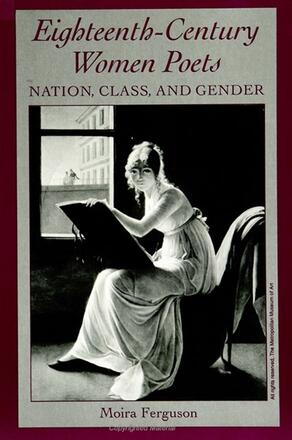
Eighteenth-Century Women Poets
Nation, Class, and Gender
Alternative formats available from:
This book shows how eighteenth-century women's literature redefined nation and culture in class and gendered terms.
Description
This book examines the poems of three Englishwomen—washerwoman Mary Collier, middle-class feminist polemicist Mary Scott, Bristol milkwoman Ann Yearsley, and Scottish dairywoman from Ayrshire, Janet Little. It questions how national identity might have influenced gender and class affiliations, and, reciprocally, how gender might have determined a nationalist impulse, particularly as it played out during the revolutionary period (1770-1800) in which most of the texts were written.
Moira Ferguson is James E. Ryan Chair in English and Women's Literature at the University of Nebraska-Lincoln. Her recent publications include Subject to Others: British Women Writers and Colonial Slavery 1678-1834; Colonial and Gender Relations from Mary Wollstonecraft to Jamaica Kincaid; and Jamaica Kincaid: Where the Land Meets the Body.
Reviews
"I most admire this book's combination of a learned understanding of eighteenth-century British culture with a keen political astuteness and a sensitivity to the literary historical problems presented by working with women writers in the period. Ferguson brings her subjects alive through a judicious use of biographical and cultural contexts. " — Donna Landry, Wayne State University
"It is a lively and engaging book which will be of crucial interest to both eighteenth-century scholars and students of women's literature. It is based on exemplary research, both bringing to light previously undocumented texts, and providing fresh contexts for other still relatively underdiscussed texts. " — Adela Pinch, University of Michigan